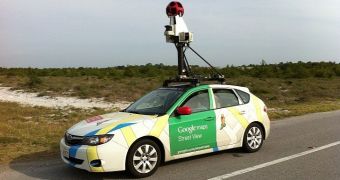Google has created a really cool algorithm that it uses to go through the Street View footage to read street numbers, helping Google Maps provide more accurate directions.
The algorithm is so good, in fact, that it can be used to decipher 99 percent of all CAPTCHAs, those annoying little puzzles that have made us all want to smash our keyboards for not figuring out that one broken letter.
A joint paper released by Google and reCAPTCHA admits that it is pretty difficult to figure out the street numbers in photographs because of all details such as lighting, motion and focus blur. Even so, Google needs this data and so it has worked out a way to make sure it can get it.
“This technology finds and reads street numbers in Street View, and correlates those numbers with existing addresses to pinpoint their exact location on Google Maps. We’ve described these findings in a scientific paper at the International Conference on Learning Representations (ICLR),” Google writes in a blog post.
“In this paper, we show that this system is able to accurately detect and read difficult numbers in Street View with 90% accuracy,” the company continues.
These findings have more implications than just figuring out what street number the Google cars are at. They have some implications for spam and abuse protection on the Internet as well.
“For more than a decade, CAPTCHAs have used visual puzzles in the form of distorted text to help webmasters prevent automated software from engaging in abusive activities on their sites,” the company writes, mentioning that in 99% of cases, the algorithm can also figure them out too.
And if Google can do it, others can do it as well, which is why typing in the answer to a distorted image should not be the only factor when it comes to figuring out if the query comes from a human or a machine.
“Fortunately, Google’s reCAPTCHA has taken this into consideration, and reCAPTCHA is more secure today than ever before. Last year, we announced that we’ve significantly reduced our dependence on text distortions as the main differentiator between human and machine, and instead perform advanced risk analysis,” Google brags.
“This has also allowed us to simplify both our text CAPTCHAs as well as our audio CAPTCHAs, so that getting through this security measure is easy for humans, but still keeps websites protected,” it adds.

 14 DAY TRIAL //
14 DAY TRIAL //